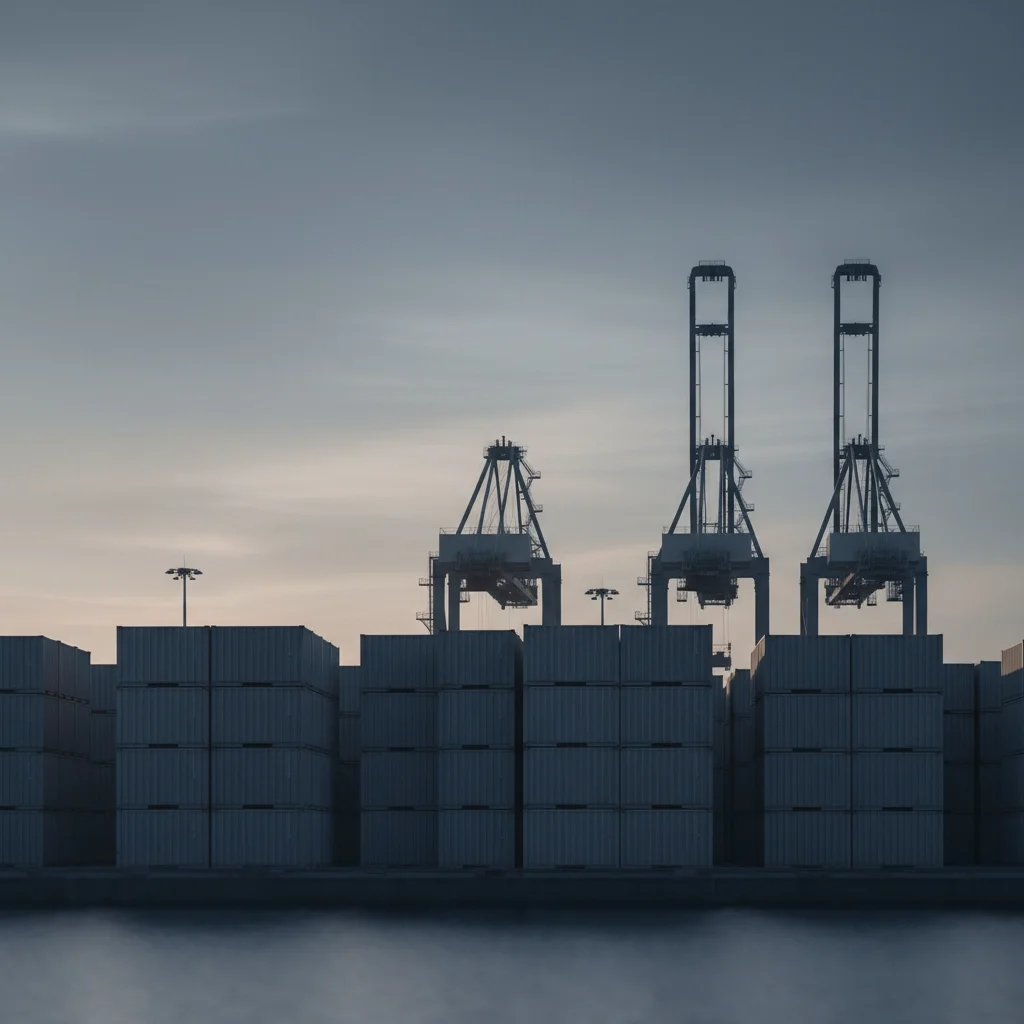Going Global: Consulting Partner Guidelines for International Expansion: Why Tariffs, Culture, and Local Strategy Matter More Than Ever
Executive Summary
Forbes Global 2000 (2025): Americas 39.2%, APAC 35%, EMEA 22%.
Global expansion is no longer optional—61% of revenue sits outside North America.
Tariffs and trade policies are board-level drivers; winners build around tariffs, culture, and local strategy.
Act now: model tariffs, localize sales beyond translation, leverage culture, choose resilient partners, run agile, scenario-based ops.
MDK Global helps leadership teams deploy tariff-smart structures and localized go-to-market that travel.
The guide below turns these principles into action—tight, practical, and built for speed.
Tariffs: The Game Changer Nobody Saw Coming
A few years ago, tariffs were something finance settled after market entry decisions. Now they shape where and how you enter from day one.
The smartest move is to use tariffs as strategic catalysts, not obstacles. Look at widely reported examples: Caterpillar localized production across China and Brazil to reduce exposure to import duties and accelerate regional time-to-market. Harley-Davidson publicly shifted some EU-destined production outside the U.S. when retaliatory tariffs hit in 2018. Different industries, same play: align footprint with policy reality.
The tariff-smart approach we recommend:
Model multiple tariff scenarios before committing to markets or partners
Build cost flexibility into contracts and pricing (index clauses, pass-through thresholds)
Use trade agreements like USMCA strategically (many firms capture 10–15% cost improvements via thoughtful routing and service structures)
Keep supply chain options open: qualify backup geographies and dual-source critical SKUs
What this means: treat tariff analysis as a competitive capability, not a compliance chore. MDK Global equips leaders with scenario models, entry structures, and partner frameworks that remain resilient when policies shift.
Know Your Markets (Really Know Them)
Those revenue stats tell only part of the story. The Americas may be the biggest slice, but APAC’s 35% represents the fastest-growing opportunity for many categories.
The common misstep: assuming market size equals near-term opportunity. It doesn’t. Each region runs on different business rhythms, decision-making norms, and relationship dynamics.
In our client work, market research goes deeper than demographics. You need to understand:
How long sales cycles actually run (often longer than forecasts suggest)
Who the true decision-makers are (formal titles vs. informal influencers)
What “urgency” means locally (quarterly pressure vs. consensus-building)
How compliance and regulatory cadence impacts sales timing and onboarding
What this means: build readiness around the market’s pace—not your quarter. MDK Global maps buying centers, cycle length, and regulatory gates so your plan matches reality on the ground.
Build Localized Sales Strategies (Not Translated Ones)
Translation is not localization. Many teams port the deck, tweak currency, and call it done. That’s the fastest way to stall pipeline.
Real localization rebuilds your sales motion for each market. In Europe’s enterprise segments, for example, consensus-driven buying and formal diligence often require deeper discovery and more comprehensive proposals than North American norms.
Here’s what works:
Match your sales cycle timeline to local business rhythms, not HQ targets
Reframe the value proposition to local priorities (cost containment vs. innovation vs. compliance)
Add local market expertise to navigate norms, procurement, and partner ecosystems
Tune follow-up cadence so “persistent” doesn’t translate as “pushy”
The key insight: your product can be global; your sales strategy must be hyperlocal. MDK Global designs localized playbooks—messaging, proof points, partner alignment—that lift win rates without bloating cost of sale.
Respect Cultural Differences (But Don't Overthink It)
Focus on the big levers; stay curious about the small ones.
The big things that matter:
Decision-making hierarchy (who decides vs. who needs to be informed)
Time orientation and deadlines (strict milestones vs. flexible windows)
Communication style (direct vs. indirect feedback cultures)
Relationship-first vs. transaction-first expectations
The small signals that show respect:
Basic greetings and business etiquette
Gift-giving and meeting protocols
When to push, when to pause
Local holidays and events that affect timing
Practical rule: ask local team members or partners before assuming. MDK Global integrates cultural briefings into enablement so your first impression accelerates trust, not drag.
Channel Partners: Your Secret Weapon in Complex Markets
In a tariff-heavy world, the right partners aren’t optional—they’re accelerators. They reduce friction, add credibility, and help you navigate rules you don’t know yet.
What to look for in international partners:
Deep local knowledge and relationship networks
Compliance and regulatory fluency (licenses, certifications, audits)
Financial stability to weather policy swings
Cultural credibility that opens closed doors
Technology fit that integrates with your stack
Critical detail: structure partnerships for tariff volatility. Include adjustment clauses, floor/ceiling mechanics, and shared-risk models that keep both sides motivated when inputs move.
What this means: pick partners for resilience, not just reach. MDK Global helps clients source, vet, and structure agreements that perform under pressure.
Stay Agile and Data-Driven
The environment shifts fast. What worked six months ago may stall today. Leaders who win build agility and real-time data into international operations.
An agility framework we deploy with clients:
Set automated alerts for tariff, policy, and regulatory changes
Run scenario planning quarterly (base, bull, bear) and tie to triggers
Keep timelines flexible enough to accelerate, pause, or resequence entries
Maintain parallel market entry options (pilot channels, distributors, direct)
Use data to validate or challenge cultural assumptions and sales heuristics
The goal isn’t perfect prediction—it’s faster, better response. MDK Global operationalizes this cadence so teams can pivot without chaos.
Executive Takeaways: Your International Expansion Checklist
Based on MDK Global’s work building tariff-smart, localized sales engines, use this checklist to pressure-test your plan:
Market Research and Risk Analysis:
Model best/worst/most-likely tariff scenarios for each target market
Map regulatory compliance requirements and timelines
Identify local partners and advisors before you need them
Calculate true total cost of entry (including hidden compliance costs)
Validate cultural business practices through local experts, not internet summaries
Strategy and Planning:
Build tariff flexibility into financial models and pricing
Create localized sales processes for each priority market
Establish local legal and tax advisory relationships
Design partnership structures that share tariff and policy risk
Stand up real-time monitoring for policy and regulatory changes
Execution and Operations:
Train teams on cultural practices and relationship-building
Install local market feedback loops into weekly ops
Define rapid response protocols for policy shifts
Build redundancy into supply chains and ops footprints
Measure success on local market metrics, not just global KPIs
The bottom line: international expansion in 2025 demands a new operating model. Tariffs, culture, and local strategy are not side notes—they’re the main act.
Teams that move on this—calmly, deliberately, and data-first—turn complexity into advantage and build more resilient global revenue.
For more insights on navigating international business challenges, check out our international business consulting services where MDK Global helps companies build tariff-smart expansion strategies.



